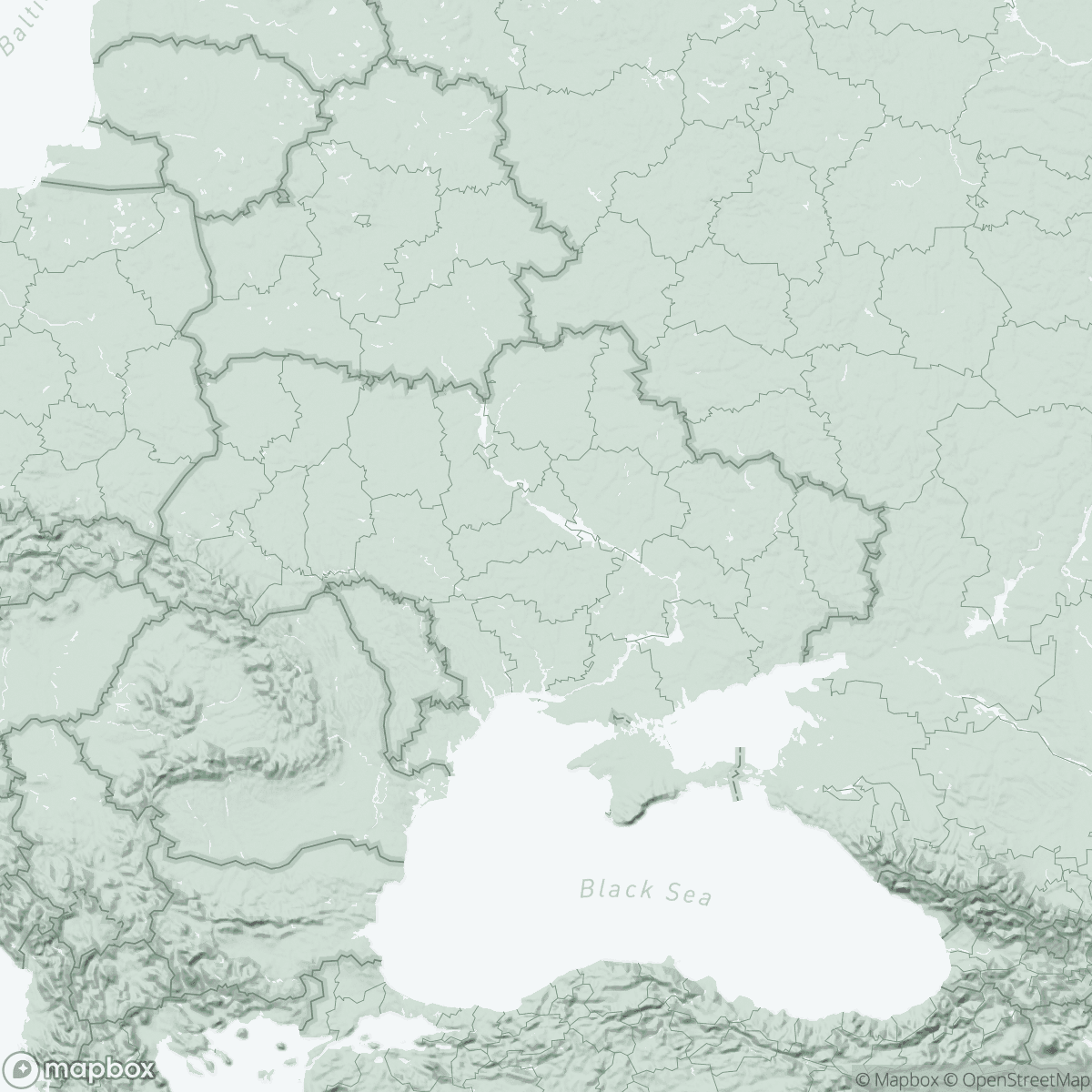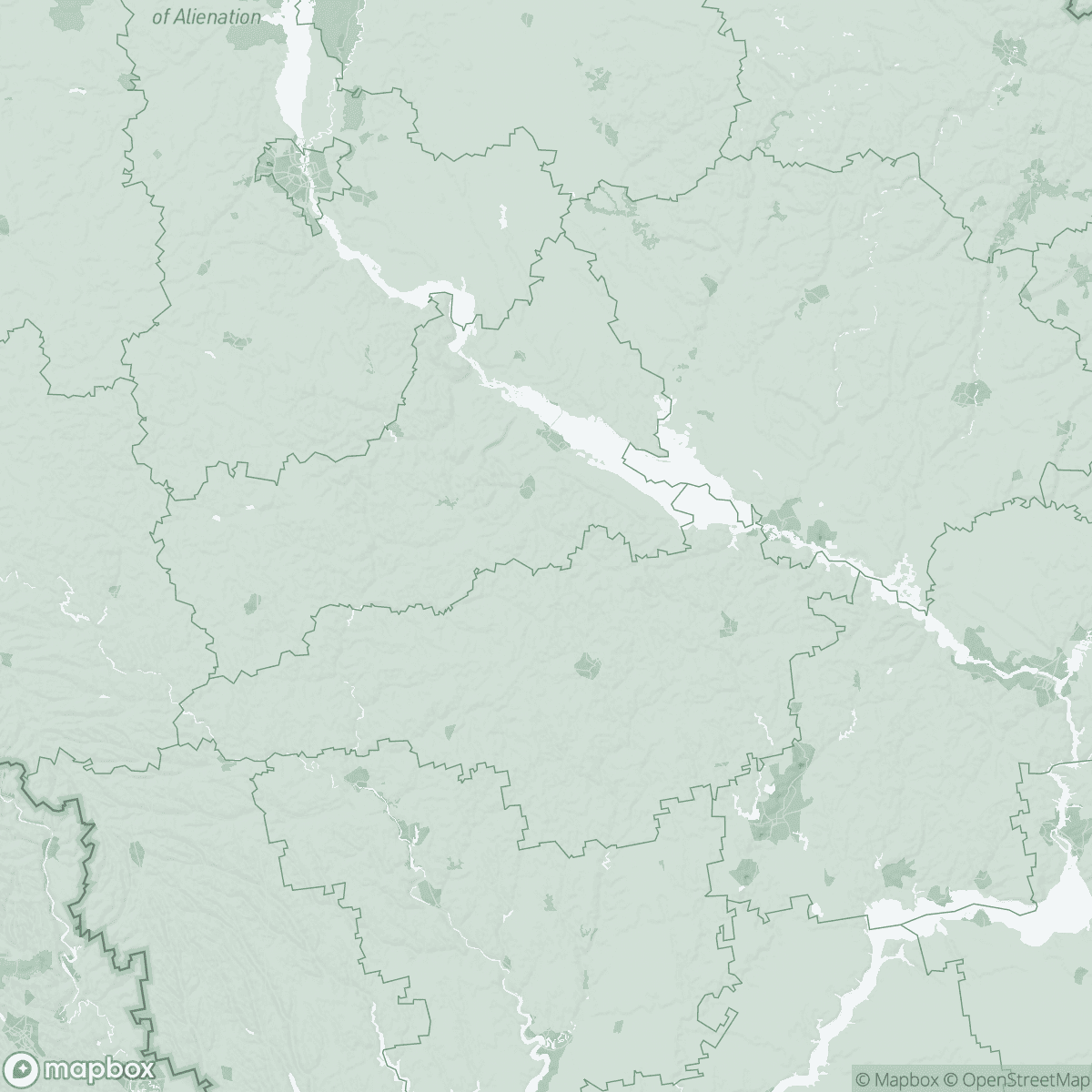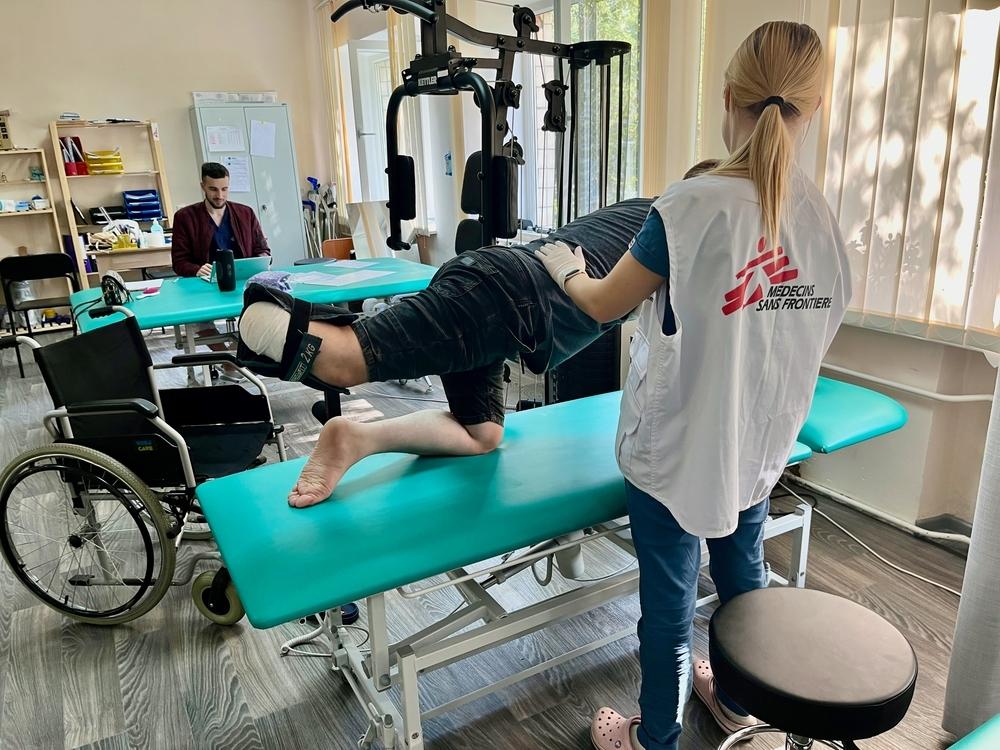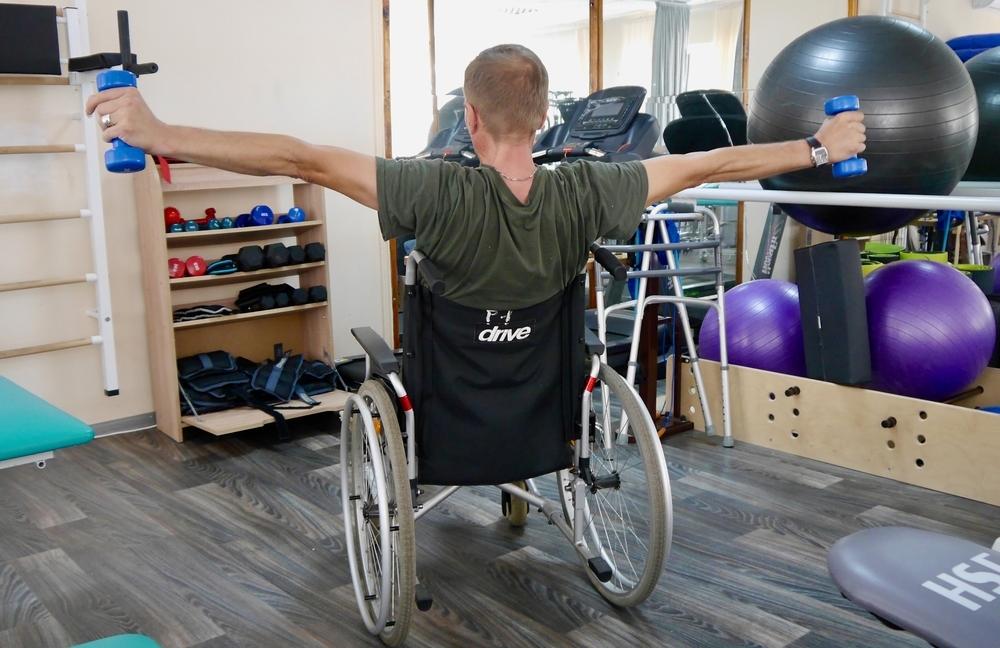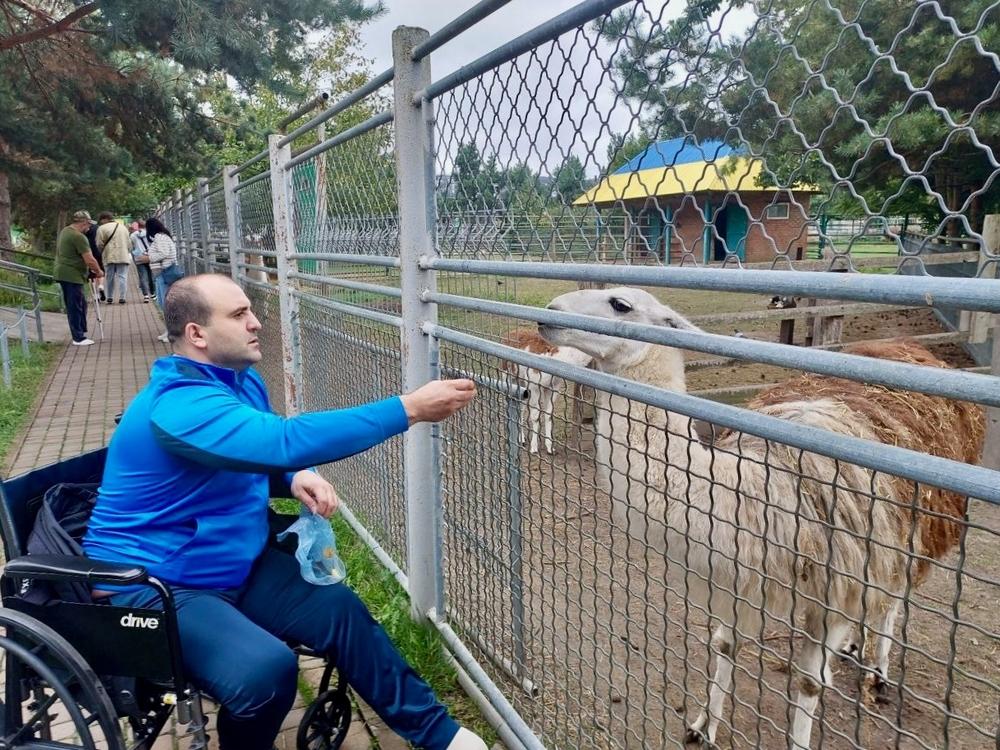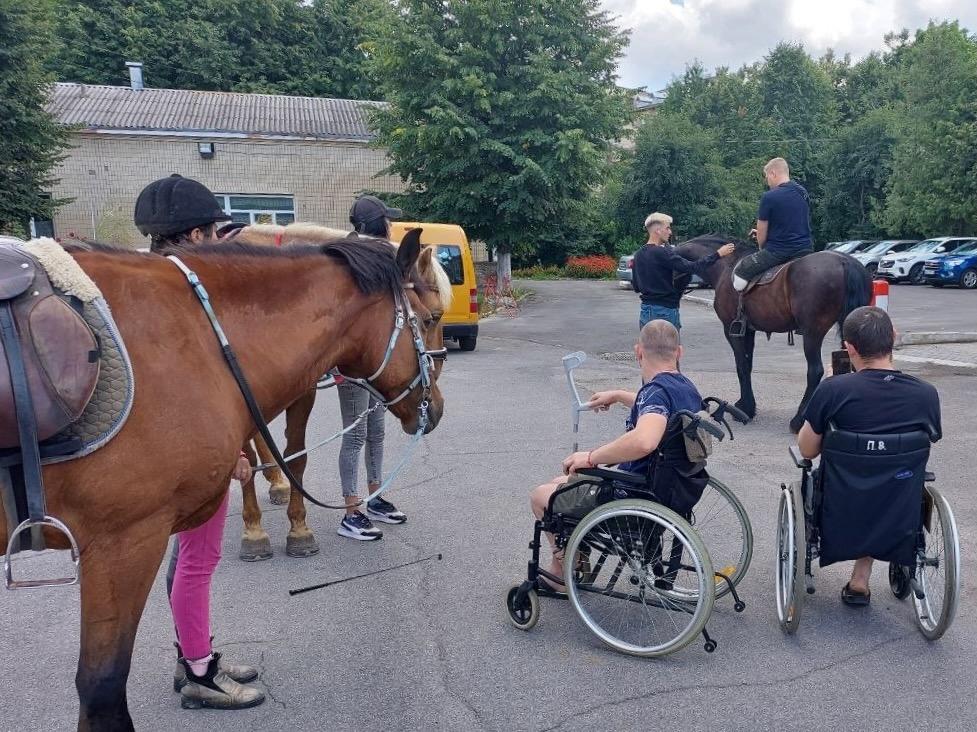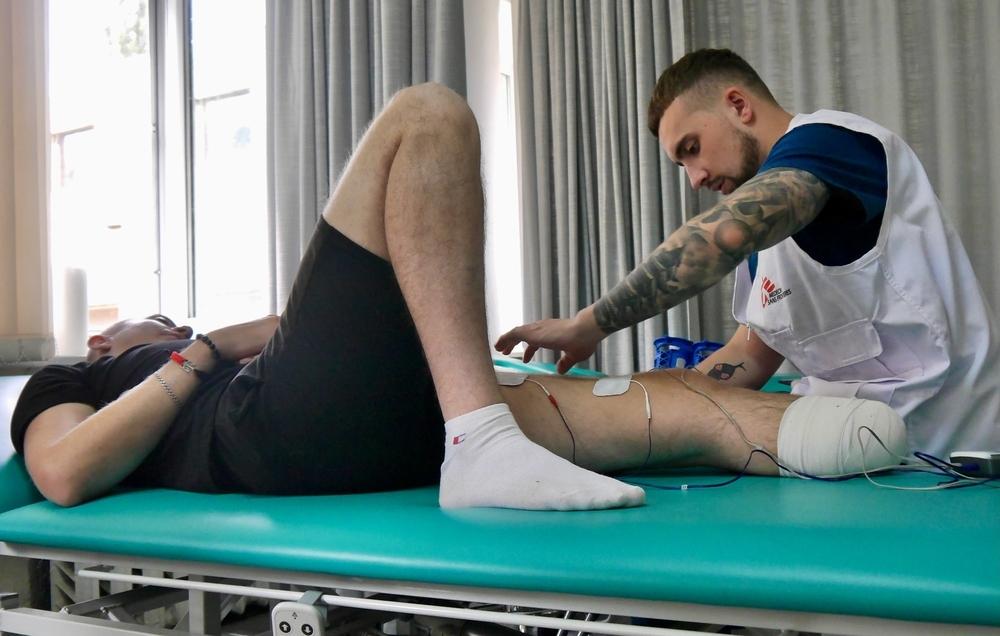
MSF responds to rising war-wounded cases in Kyiv and Vinnytsia
In 1 click, help us spread this information :
With Russia’s full-scale invasion in February 2022, Ukraine has now become the most heavily mined country in the world; a title that no nation wants to hold the record for. The State Emergency Service of Ukraine estimates that approximately 30 per cent of its territory (170,000 square kilometers) may be contaminated with landmines and unexploded ordnances.
Hospitals have seen a significant influx of patients, particularly in the eastern and southern regions, of Donetsk, Kherson, and Kharkiv, where there is active fighting and the spread of landmines is most prevalent. In these hospitals, initial emergency care is provided and patients are stabilised, and if necessary, surgical interventions are performed. To alleviate the strain on these healthcare facilities, patients are subsequently transported to hospitals in relatively secure regions, like Kyiv and Vinnytsia for further treatment and rehabilitation.
The surge in patients with amputations and complex injuries has created a critical need for medical specialists – particularly physiotherapists – to provide post-operative rehabilitation care. According to the Ministry of Social Policy, since the escalation of the war in February 2022, the number of Ukrainians with disabilities has increased by 300,000, and the demand for physiotherapists with experience in treating acute or chronic injuries has doubled.
Physiotherapy treatment
In response to this need, in mid-2022, Médecins Sans Frontières (MSF) initiated a project focused on early rehabilitation of war-wounded patients at hospitals in Vinnytsia and Kyiv, where the patients are evacuated from the most conflict-affected areas of Ukraine. Collaborating with the Ministry of Health and Ministry of Internal Affairs, MSF medical teams started implementing new and evidence-based approaches to rehabilitation to support the recovery of injured patients.
“Physio is not well developed in Ukraine. There are not enough physiotherapists,” says Viktoriia Vantsarovska, a physiotherapist who joined MSF a year ago.
The injuries we are treating are amputations, multiple traumas, and nerve injuries. At first it was very difficult to mentally accept what I was seeing. I have never encountered such war-related traumas before.”
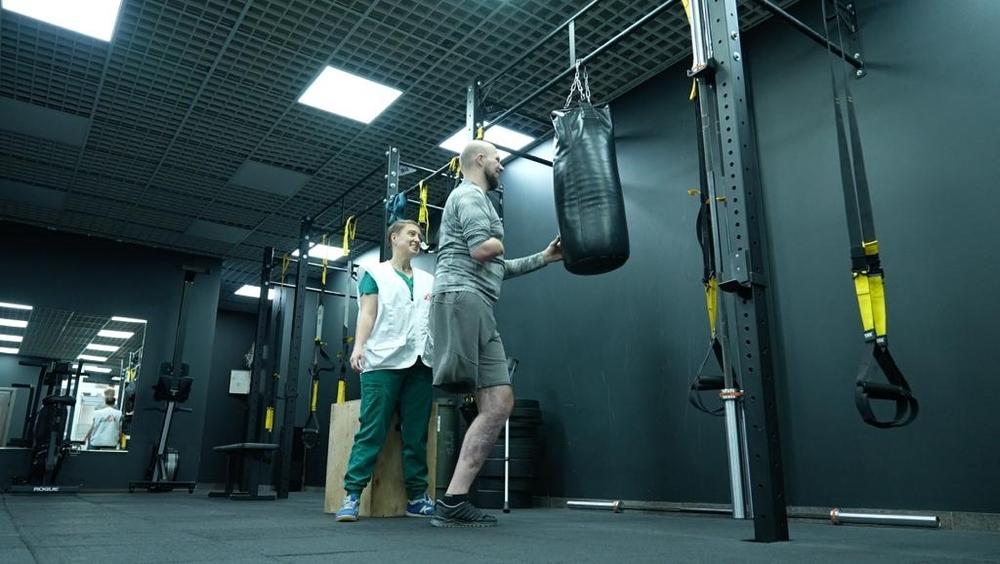
Since the rehabilitation project commenced, MSF has provided more than 19,000 physiotherapy sessions with 668 patients. One of these patients is Andrii, who has been receiving treatment at the hospital in Vinnytsia.
I stepped on a landmine in Donetsk region in July and since then I’ve had six surgeries. My right leg was amputated, and I also have nerve damage in my left arm. The physiotherapists always try new activities and approaches to help me. I would be immobilised without physio,” says Andrii.
Psychological support
As part of the rehabilitation project, MSF also provides patients with psychological care. The counselling services help patients process their traumatic experiences, gain motivation to maintain their physiotherapy, and better accept and adapt to their new body and living conditions.
A total of 2,638 psychological sessions have been provided to 508 patients, as well as 110 psycho-social group activities.
One particularly innovative component of the psychological services provided to amputee patients involves a "mirroring" exercise, which is performed by putting a mirror between their surviving leg and stump. The patient sees their leg in the reflection of the mirror and moves it; creating the perception that they are moving both limbs.
During this time, MSF psychologist supports the person, engaging in discussions about the perception of movements, and the patient shares their fears and worries about the new body. This exercise contributes to the acceptance of the prosthesis in the future, with the psychologist playing an essential role. The mirroring exercise is also used to address phantom pains in the missing limb, whereby the patient can address the imaginary pain by rubbing or moving the existing limb whilst looking at the mirror.
Quelle est la suite des événements ?
Après avoir mis en place les installations et les services de réadaptation à Vinnytsia et à Kiev, et assuré pendant 18 mois les soins aux patients et le renforcement des capacités du personnel, MSF a remis ces projets à Mehad, une ONG française qui gère des projets de santé et de développement, en décembre 2023. Tous les spécialistes ukrainiens de la santé - y compris les physiothérapeutes et les psychologues - sont conservés par Mehad, et MSF a fait don du matériel médical et de bureau, ainsi que de deux véhicules pour soutenir la poursuite des activités de réadaptation.
« Les patients souffrant de traumatismes liés à la guerre reçoivent un traitement précoce et complet de la part de notre équipe multidisciplinaire qui leur offre des soins de physiothérapie, un soutien en santé mentale et des soins infirmiers », explique Katerina Serbina, coordinatrice de projet MSF pour Cherkasy et Zhytomyr.
Nous travaillons en étroite collaboration avec le ministère de la Santé, qui est très dynamique, mais aussi confronté à d'énormes difficultés en raison de la guerre. Notre équipe soutient le personnel du ministère en renforçant ses capacités, de sorte que la présence de MSF apporte une valeur ajoutée à l'ensemble du système de soins de réadaptation dans le pays ».
What’s next?
After setting up the rehabilitation facilities and services in Vinnytsia and Kyiv, and providing 18 months of patient care and capacity building of staff, in December 2023, MSF handed over these projects to Mehad, a French NGO managing health and development projects. All the Ukrainian health specialists – including the physiotherapists and psychologists – are being retained by Mehad, and MSF has donated the medical and office equipment, as well as two vehicles to support the continuation of the rehabilitation activities.
Patients with war-related trauma receive early and comprehensive treatment from our multidisciplinary team that provides physiotherapy, mental health support, and nursing care,” says Katerina Serbina, MSF project coordinator for Cherkasy and Zhytomyr. “We work in close partnership with the Ministry of Health (MoH), who are very dynamic, but also facing a huge challenge because of the war. Our team supports the MoH staff by building their capacity, so that MSF presence has an added value to the whole system of rehabilitative care in the country.”
